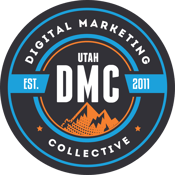John Doherty is an experienced digital marketer who has worked in agency settings (Distilled), in-house (Zillow), and as a consultant/freelancer (Credo). During his early consulting days, John did some SEO for a client for $50. In the years that have passed, that $50 in work has generated his $6M in business for his client. Needless to say, John was not fairly compensated for the work he did.
This experience and others pushed John start Credo, a platform where businesses can find reputable SEO and marketing vendors. Conversely, Credo provides an opportunity for marketing vendors to connect with potential clients. As part of his marketing initiatives for Credo, John put together an industry pricing survey. This survey helps create some transparency in the industry because as John say, “ People don’t like to talk about money. They don’t like to talk about budget.”
By sharing his findings, John hoped that DMC attendees would have one of a few takeaways
- Find out what agencies/consultants charge for their digital marketing work
- Help agencies price their own work
- Teach consultants how to sell better projects
- Inform buyers on how to buy better marketing services
The Findings
John’s survey participants included consultants and agencies from the U.S. England, and Australia. Here are some of the highlights from John’s analysis that he shared with DMC:
- Solo consultants (across the world) charge less per hour on average than agencies
- U.S. solo consultants cost more than other global consultants
- Agencies who only do strategy charge 66% higher hourly rate than agencies that do not
To view the entire pricing survey results, head to Credo.
How Do You Charge What’s Fair?
Pricing in the digital marketing industry is difficult. John’s survey revealed that pricing is dynamic across the industry. It’s also different for agencies when compared to pricing for consultants.
John’s recommendations for pricing? If you’re a solo consultant, figure out how much you want to make, factor in any overhead like tools, and back into a that number. For an agency, John recommends a minimum price of 3X per hour of your hard costs.
There are also other considerations, namely value added. As John says, “Any decent marketer can make a business $500, but they shouldn’t charge the same as a marketer than can make a business $500,000 and vice versa.”
Tips for Pitching Clients on Your Services
Because of John's’ experience at an agency and as a consultant, he also shared tips for improving your pitches to your clients:
- Tell them the results you are hoping to see based off past experience
- Outline the first few months of effort (no results without effort)
- Explain how results are seen (especially in SEO, not in one month)
How to Sell a Single Project
An area where John sees a lot of opportunity is with one-off projects as are much easier to sell than retainers. However, you need more of them each year to meet and surpass revenue goals, which means increased overhead. Make your next single project a success with the following:
- Have deliverables
- Have case studies
- Be clear what is included and what is not
- Set expectations for what you need and time to completion from start date
Tips for Selling Hourly Pricing Projects
When you price a project on hourly pricing, your income is directly tied to the hours you work. John recommends the following:
- Only do it for people you know and trust
- Set a minimum number of hours
Side Note: Startup equity is worth zero dollars unless you know what you are doing
What to Do When a Client Wants to Negotiate
Everyone at an agency or working as a consultant has been on a call or in a meeting with a potential client who has asked you to negotiate on price. John’s advice? Tell them, “I negotiate on scope of work, not pricing."
How to Hire the Right [Digital Marketing] Help
When it comes down to hiring the right digital marketing help, John shared a number of recommendations. First, start with determining what you need. There’s no sense in hiring an agency that only duplicates your internal resources unless that is what you need.
Second, determine if you need the help to be local. Each organization is going to have different needs and preferences in this regard. Third, find out if your budget/scope of work needed aligns with what the agency or consultant you’re looking to work with.
Fourth, ask yourself if their work style similar to yours and if you can trust them in front of your executive. If all signs are green, be willing to commit!
